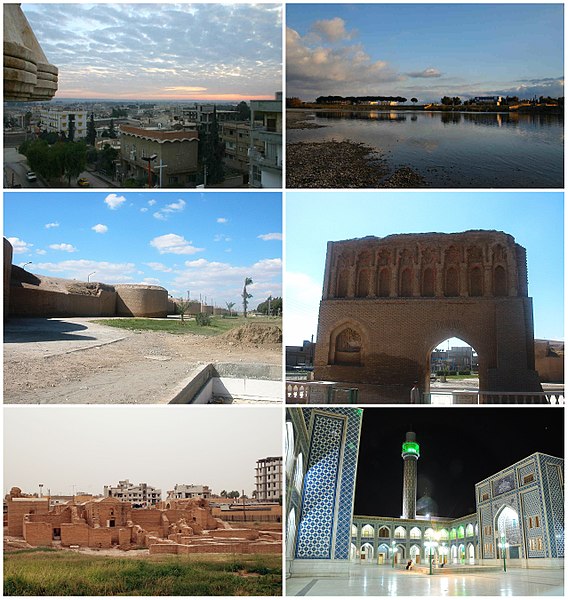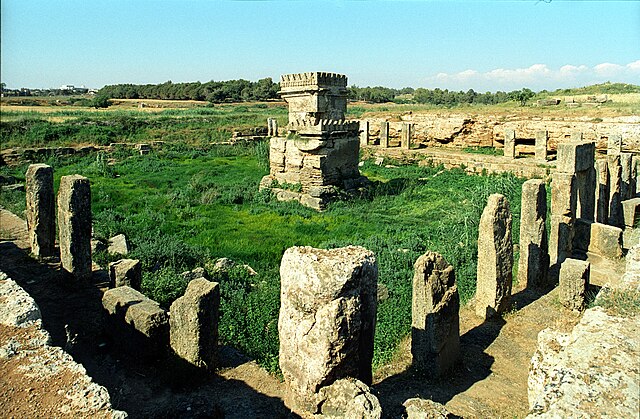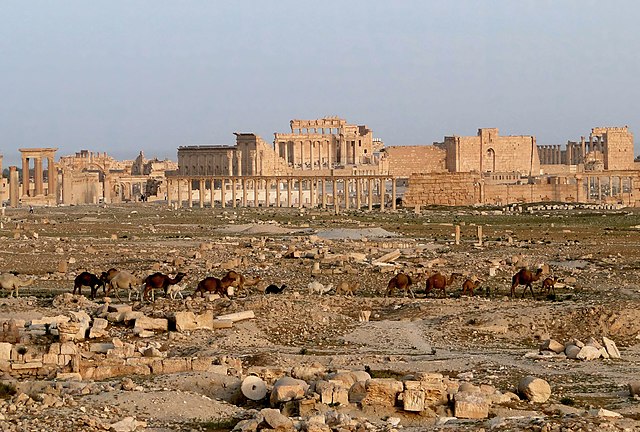Raqqa is a city in Syria on the left bank of the Euphrates River, about 160 kilometres east of Aleppo. It is located 40 kilometres east of the Tabqa Dam, Syria's largest dam. The Hellenistic, Roman, and Byzantine city and bishopric Callinicum was the capital of the Abbasid Caliphate between 796 and 809, under the reign of Harun al-Rashid. It was also the capital of the Islamic State from 2014 to 2017. With a population of 531,952 based on the 2021 official census, Raqqa is the sixth largest city in Syria.
Raqqa skyline • The Euphrates Raqqa city walls • Baghdad gate Qasr al-Banat Castle • Uwais al-Qarni Mosque
The remains of the historic Baghdad gate
Ewer, late 12th–first half of the 13th century, from Raqqa. Metropolitan Museum of Art.
Raqqa Museum (pre-Syrian Civil War)
Syria, officially the Syrian Arab Republic, is a country in West Asia located in the Eastern Mediterranean and the Levant. It is bounded by the Mediterranean Sea to the west, Turkey to the north, Iraq to the east and southeast, Jordan to the south, and Israel and Lebanon to the southwest. Cyprus lies to the west across the Mediterranean Sea. It is a unitary republic that consists of 14 governorates (subdivisions). A country of fertile plains, high mountains, and deserts, Syria is home to diverse ethnic and religious groups, including the majority Arabs, Kurds, Turkmens, Assyrians, Circassians, Armenians, Albanians, Greeks, and Chechens. Religious groups include Muslims, Christians, Alawites, Druze, and Yazidis. The capital and largest city is Damascus, followed by Aleppo, Homs, Latakia, Hama, Deirezor, and Raqqa. Arabs are the largest ethnic group, and Sunni Muslims are the largest religious group. Syria is now the only country that is governed by Ba'athists, who advocate Arab socialism and Arab nationalism.

Female figurine, 5000 BC. Ancient Orient Museum.
Ishqi-Mari, king of the Second Kingdom of Mari, circa 2300 BC.
Amrit Phoenician Temple
Ancient city of Palmyra before the war








